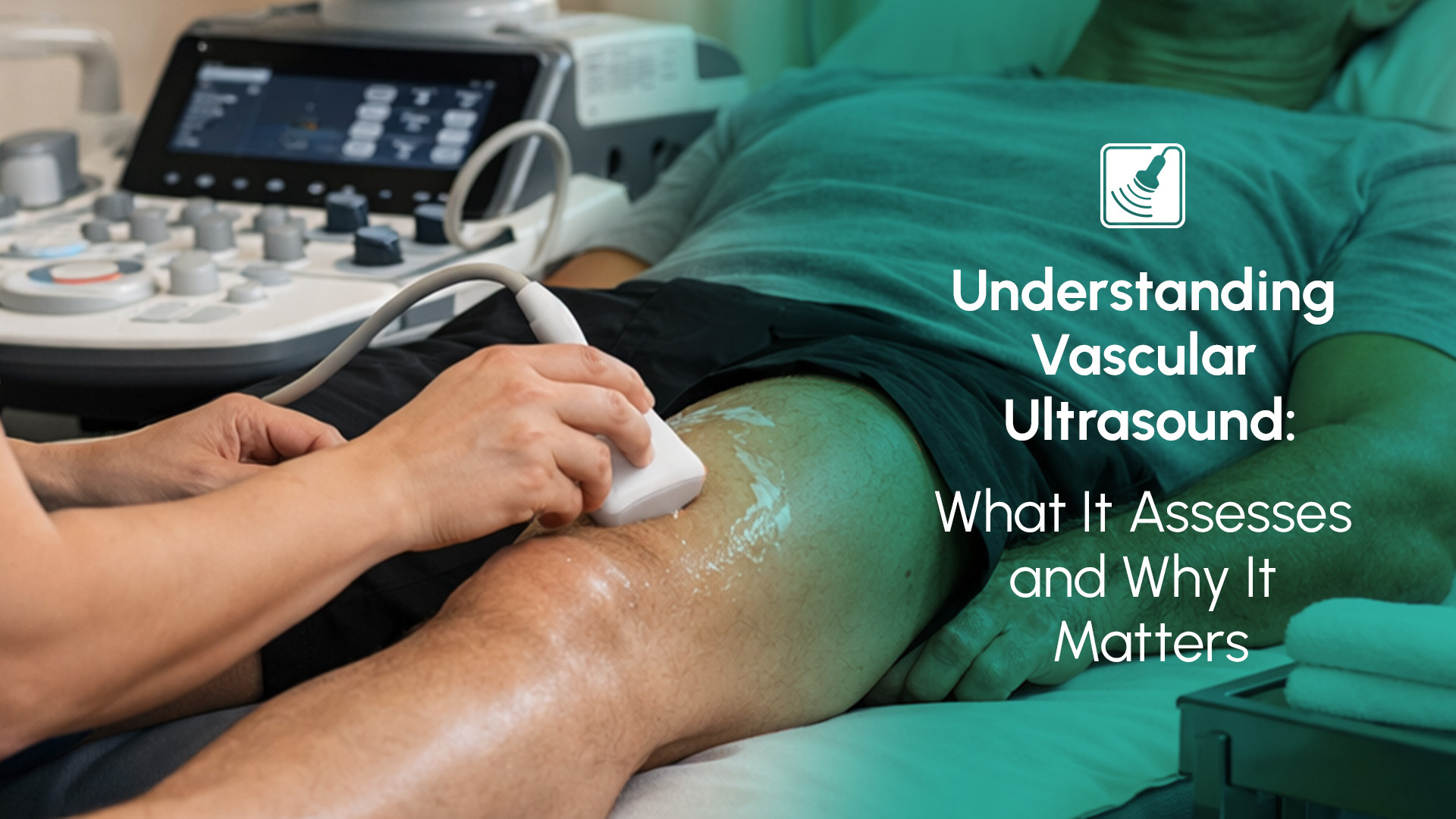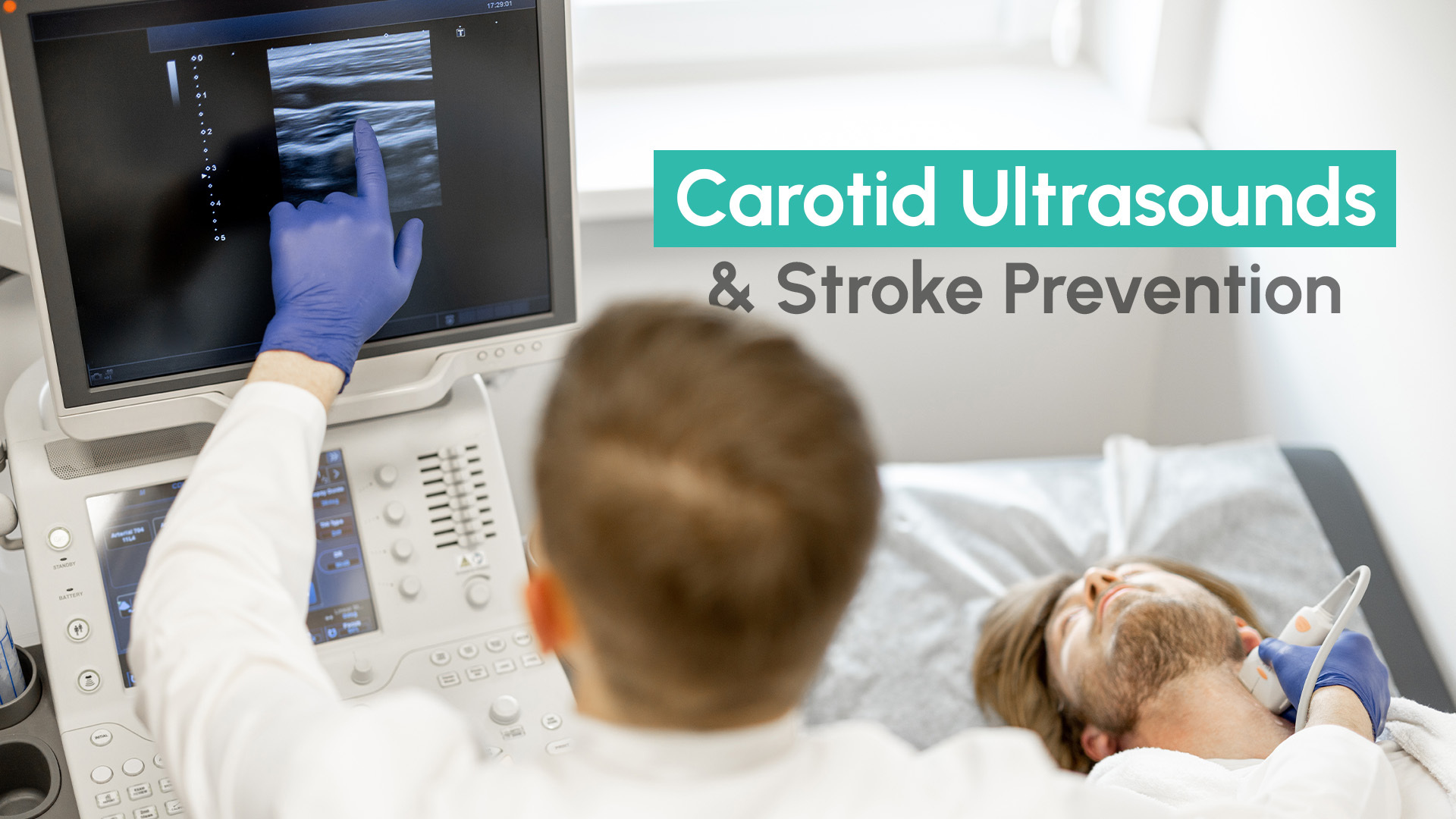

Stroke is a major high-stakes health concern and can strike without warning, often leaving lasting impacts. The good news? Many strokes are preventable, especially those caused by narrowing in the arteries of the neck, known as the carotid arteries. A carotid ultrasound is a simple, painless scan that can detect narrowing in these arteries before it causes serious harm. By spotting problems early, treatment can reduce your stroke risk and protect your long-term health.
Capri Ultrasound offers bulk billed carotid ultrasounds right here on the Gold Coast, accepting all valid referrals from GPs and specialists.
The carotid arteries are two major blood vessels located on each side of your neck. Their job is to carry oxygen-rich blood from your heart to your brain. These arteries can become narrowed or blocked, often due to a build-up of fatty deposits called plaque, and this can cause the brain’s blood supply to be reduced or even cut off, causing a stroke.
Narrowing of the carotid arteries is called carotid artery stenosis, and in many cases, it develops silently over time without any symptoms.
A carotid ultrasound uses high-frequency sound waves to create images of the carotid arteries and measure blood flow. Here’s how it can help:
A doctor might refer you for a carotid ultrasound if you:
Even without symptoms, people with multiple risk factors may benefit from screening, particularly if advised by their GP or specialist.
A carotid ultrasound is straightforward and completely non-invasive.
There’s no radiation, no injections, and no downtime, you can return to your usual activities straight afterwards. Your results are sent directly to your referring healthcare provider.
Carotid artery narrowing can allow small pieces of plaque or blood clots to travel to the brain, blocking smaller arteries and triggering a stroke. Unfortunately, many people don’t know they have narrowing until it’s too late.
By detecting narrowing early, a carotid ultrasound gives you the opportunity to take action before a major event occurs. Treatments may include:
Most strokes linked to carotid artery narrowing are preventable with the right treatment plan. This is why early detection matters so much. A carotid ultrasound is one of the most effective tools for identifying narrowing before symptoms appear, and acting early can mean the difference between living well and facing serious disability.
Not all imaging clinics offer vascular scans like the carotid ultrasound. At Capri Ultrasound, you’ll benefit from:
Whether your doctor is investigating symptoms, monitoring risk factors, or screening for prevention, our experienced team is here to deliver high-quality, accurate results.
Stroke is a serious and life-changing event, but with the right tools, many cases can be prevented. A carotid ultrasound is a simple, safe, and effective way to check your neck arteries for narrowing and take action before it leads to a stroke.
Capri Ultrasound offers bulk billed carotid ultrasounds on the Gold Coast, making this potentially life-saving scan accessible to everyone with a valid referral. Ask your GP or specialist about a referral to Capri Ultrasound today, because when it comes to stroke prevention, early detection could save your life.